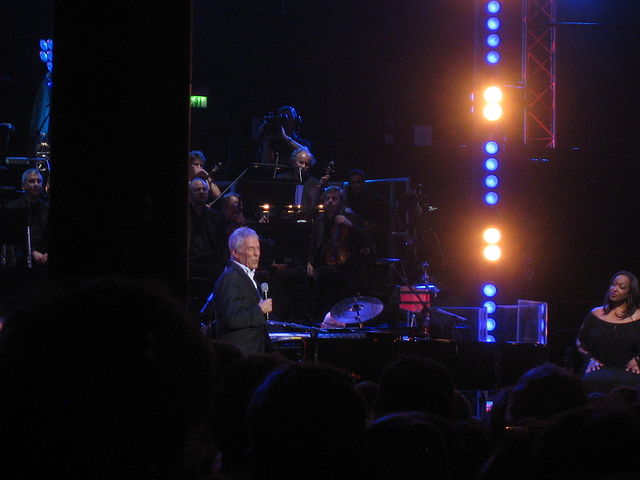Remembering the best of Burt Bacharach
February 13, 2023
The influential songwriter and composer Burt Bacharach died Wednesday.
Bacharach began his long, fruitful career in the early 1950s, working as a pianist for popular artists such as Vic Damone and Steve Lawrence. He met lyricist Hal David in 1957 and the two embarked on a decades-spanning partnership, resulting in many beloved hit songs.
Following the dissolution of his partnership with David, Bacharach went on to work with artists like Elvis Costello on the album “Painted From Memory,” and more recently Daniel Tashian, on their 2020 Grammy-winning EP “Blue Umbrella.”
As the world mourns the man behind some of the most iconic songs of the 20th century, here are five of his works that will stand the test of time.
“Raindrops Keep Fallin’ on My Head” – B.J. Thomas
Originally written for the soundtrack of “Butch Cassidy and the Sundance Kid,” “Raindrops Keep Fallin’ on My Head” has become one of Bacharach’s most enduring compositions. This is an optimistic, inspirational song about having hope for the future and the process of waiting to attain happiness.
The song features a tasteful, simplistic trumpet part, which is a signature of many of Bacharach’s works. More recently, “Raindrops Keep Fallin’ on My Head” was memorably used in “Spider-Man 2,” further cementing its status as a timeless pop song.
“Walk on By” – Dionne Warwick
Dionne Warwick is arguably the premier interpreter of the Bacharach and David songbook, successfully recording a multitude of their songs, including “I Say A Little Prayer,” “I’ll Never Fall in Love Again,” “There’s Always Something There to Remind Me” and “A House is Not a Home.” However, her most popular rendition of theirs is likely “Walk on By.” Released in 1964, “Walk on By” is a heartbreaking song about moving on from a relationship. Bacharach’s arrangement provides a dramatic emotional backdrop for David’s despair-filled lyrics.
“Walk on By” was also notably covered by Isaac Hayes, who composed his own unique arrangement of the song. However, Warwick’s original versions of Bacharach’s songs always tend to be the purest representation of his vision. Bacharach’s talent as an arranger was one of the defining features of his talent and Dionne Warwick’s recordings allow the listener to truly appreciate them.
“(They Long to Be) Close to You” – Carpenters
One of the greatest love songs of the 1970s, “(They Long to Be) Close to You” features one of Bacharach’s simpler arrangements, largely carried by piano and the occasional trumpet. The song has been featured in numerous films and television shows, including being the frequently reoccurring love theme to Homer and Marge’s relationship on “The Simpsons” in its early seasons.
The song’s gentle, comforting atmosphere feels like the epitome of ‘70s AM radio: soft, mellow pop without ever being cheesy or unbearably sentimental, which was one of Bacharach’s greatest strengths in his heyday.
“Make It Easy On Yourself” – The Walker Brothers
Before Scott Walker became an avant-garde iconoclast who used frozen meat as percussion instruments, he was the frontman of The Walker Brothers, one of the most popular teen idol groups to follow Beatlemania.
Best known for their single “The Sun Ain’t Gonna Shine Anymore,” Bacharach’s “Make It Easy On Yourself” provided the group with yet another dark, moody hit. The sweeping melodramatic string section and thunderous orchestral percussion provide the song with a tragic sense of urgency, perfectly suited for Walker’s deep, brooding baritone.
“The Sweetest Punch” – Elvis Costello
After a string of lackluster hits in the ‘80s including “Arthur’s Theme” by Christopher Cross and “Heartlight” by Neil Diamond, Bacharach’s 1998 collaborative album “Painted From Memory” with Irish rock musician Elvis Costello marked a true return to form for the composer.
One of the album’s biggest highlights, “The Sweetest Punch,” presents Elvis Costello at the peak of his lyrical ability paired with a darker, jazzier take on Bacharach’s classic 1960s style. Marked by Bacharach-ian signatures including lush string arrangements and trumpet solos, “The Sweetest Punch” provided Bacharach’s career with a much needed second act, over forty years after it first began.







